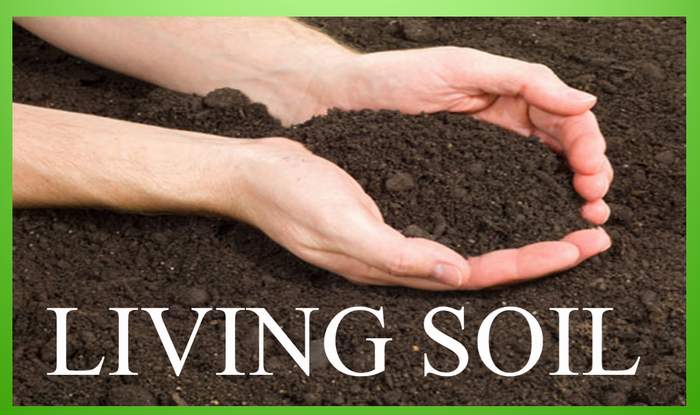The Following FAQ’s were generated from our Loyal Customer’s Questions.
If you have a question that needs an Answer…Please drop an e-mail through our Contact Page
Exactly what is compost?
According to Webster–“Compost is matter that conditions and fertilizes the land.”
More detailed definition –“A mixture of decaying organic matter, as from leaves and manure, used to improve soil
structure and provide nutrients.”
Is there more than one kind of compost?
Compost can be made from any waste, such as recycled green waste, various manures, kitchen waste,
and agricultural waste, to name a few. Usually this entails a diverse mixture of wood, leaves or a manure.
However, to be useful it must have a finished carbon/nitrogen (C/N) ratio that is appropriate.
What brand of compost is best for Farm, Orchard or my Garden?
Of course, our first answer is going to be Compost Solutions. Unfortunately, there does not seem to be an industry
standard regarding what can be labeled compost.
We bought several bags of name brand fertilizer, compost and garden amendments at a big box garden supply section
and had them analyzed. Many of them were nothing more than mulch.
This translates into a high carbon/low nitrogen level–i.e. low nutrient value,
not useful as a long term growing medium.
Basically, all compost can be mulch, but no mulch can be compost.
How can the nutrition content of various composts be so different?
The Foster Family and Compost Solutions, Inc believes it depends on the compost maker’s motive for making the product.
If the compost is being made simply because someone has a by-product of something else to get rid of,
such as left over wood or too many garden pruning, the nutrient content will probably be suspect.
However, Compost Solution, Inc’s motive is to provide fertilization, soil conditioning and sustainability.
The formulators do not have a by-product to dispose of. Therefore, their ingredients are carefully selected according
to what we believe will contribute to the nutrition and viability of the finished product.
I keep hearing people rave about using compost, but what is the reason?
Everything you grow should flourish more if your soil is “living” as opposed to “worn out” or nearly dead.
“Living” means there is microbial activity present and the nutrients are balanced. If you have been using synthetic fertilizer,
herbicides, and fungicides. you have diminished any microbes that were ever present in your soil.
As a natural fertilizer and soil conditioner, our compost will reintroduce microbes and earth worms into your soil structure–thus,
making it “living,” and making the soil much easier to work. In addition, good compost contains minor nutrients and calcium.
Organic acids in compost are invaluable in curing many soil born pathogens.

As long as things look good in my flower garden, why do I care if the soil is as you say “living?”
Any plant that has good natural nourishment from “living” soil is more pest and disease resistant.
This also goes for your vegetable garden. “Living” soil should beget more nutrient dense, disease and pest resistant produce.
In addition, the nutritious produce will have a longer shelf life.
If I buy compost in bulk, will the nutrients leach out if I don’t use it right away or keep it covered?
No. Natural (as opposed to synthetic) nutrients are not subject to leaching even if the pile gets wet.
My friend got a lot of weed seed in her garden from compost. How do I know that won’t happen to me?
You need to know the real source of your compost. Reputation is very important to a compost maker. If the product
has been thoroughly mixed and all of it has been heated to at least 135 degrees for several days, you should not
have to worry about weed seed or pathogens. Compost Solutions compost is heated to about 160 degrees.
Also, we get a lot of feedback from returning customers who are very happy with the
high quality and cleanliness of our product.
Why doesn’t my backyard compost pile seem to work?
We are not experienced in backyard composting, but many people ask us this question
and also say they never get enough compost.
We suspect the carbon/nitrogen (C/N) ratio is not correct, and there is either too much or
too little moisture which prevents proper heating.
Also the piles need to tended regarding aeration and consistent addition of the good mix of brown and green.
Many “backyard” piles are not maintained.
Can I use compost in my raised bed garden?
Our initial reaction to this question would be definitely yes.
Our recommendation would be a 50/50 mix of our compost and soil.
However, we are increasingly getting feedback from people using 100% compost in their raised beds.
Their rational for using 100% was that they don’t know where to get any reliably clean top soil.
In addition, the compost is weed free, has no rocks and is very easy to work.
They have all been extremely happy with their produce the first year.
They do report having to ad compost to the beds after harvest as it seems to do some settling with use.
We are presently doing soil and tissue sampling on the raised bed compost because we have some questions
on what nutrients and amendments may need to be replenished in the future.
We should have on-going information for you soon.
If you need someone to build raised beds for you, one suggestion would be KellyGreenLawn.com.

